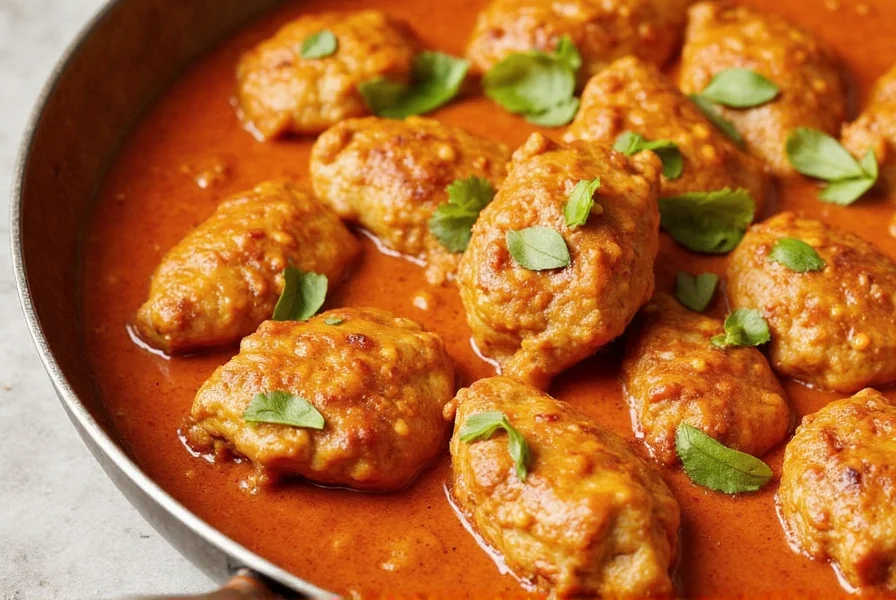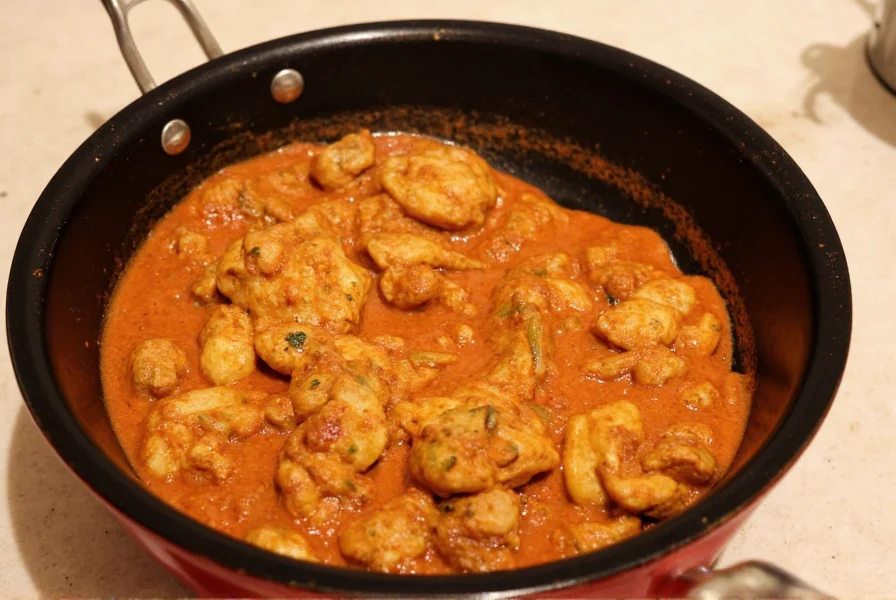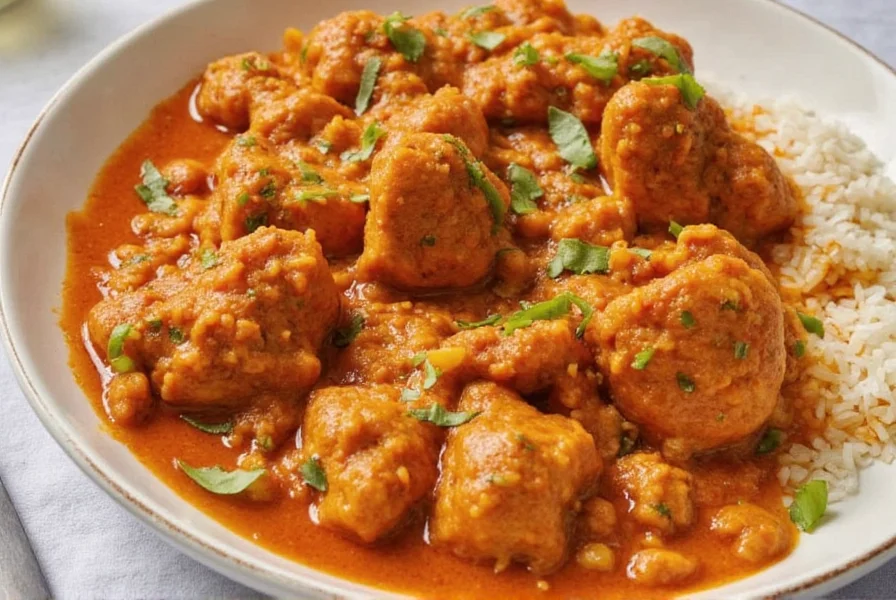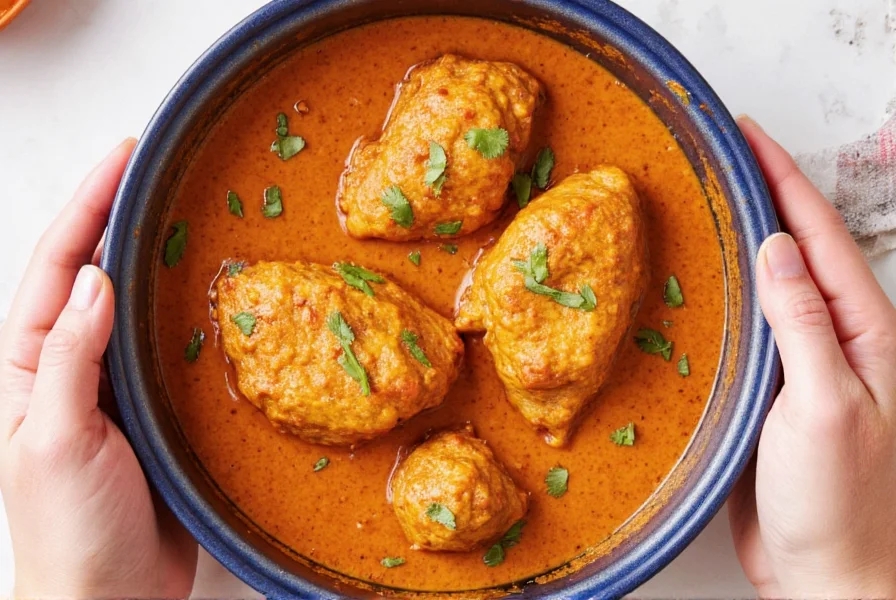The Spicy Secret Behind Chicken Tikka Masala: Uncovering the Magic of Its Seasoning
Table of Contents
- Introduction
- A Brief History of Chicken Tikka Masala
- What Makes Up Chicken Tikka Masala Seasoning?
- Why This Seasoning Works So Well
- How to Make Your Own Chicken Tikka Masala Seasoning at Home
- Buying Guide: Choosing the Best Store-Bought Seasoning
- Pro Tips for Using Chicken Tikka Masala Seasoning
- Creative Ways to Use This Flavorful Spice Blend
- Conclusion
Introduction
If you've ever taken a bite of chicken tikka masala, you know that magical, richly spiced flavor is hard to forget. That deep red sauce, tender marinated chicken, and aromatic warmth all come together to create one of the most beloved dishes in global cuisine.
But what’s the real star behind this iconic Indian dish? The answer lies in the spice blend known as chicken tikka masala seasoning. It's not just about heat — it’s about balance, depth, and aroma. In this article, we'll take you on a flavorful journey through the world of this spice mix, from its historical roots to practical tips for using (or making) it like a pro.
A Brief History of Chicken Tikka Masala
Before we dive into the spices themselves, let's take a quick trip back in time. While widely regarded as a staple of Indian cuisine, chicken tikka masala has an origin story steeped in cross-cultural fusion.

One popular theory suggests that the dish was invented in the UK by a South Asian chef who responded to a customer’s complaint that his dry chicken tikka was too dry by tossing it into a creamy tomato sauce. Another version claims it evolved from Punjabi cooking traditions brought to Britain by migrants. Either way, the dish has become a cultural touchstone and a symbol of culinary globalization.
What Makes Up Chicken Tikka Masala Seasoning?
The term “chicken tikka masala seasoning” can be a bit misleading. There isn't one official recipe — it's more of a style than a strict formula. However, there are core ingredients that define the profile:
- Cumin – Adds earthy warmth.
- Coriander – Offers citrusy, nutty notes.
- Turmeric – Gives color and a subtle bitterness.
- Paprika – Adds sweetness and vibrancy.
- Garam masala – A warming spice mix that brings everything together.
- Kashmiri chili powder – For mild heat and beautiful red color.
- Garlic & ginger powder – Essential aromatics for body and bite.
- Dried fenugreek leaves (kasuri methi) – Adds a unique, savory finish.
| Spice | Flavor Profile | Role in CTM Seasoning |
|---|---|---|
| Cumin | Earthy, smoky | Base warmth |
| Coriander | Citrusy, floral | Balances other spices |
| Turmeric | Bitter, bright | Color and depth |
| Paprika | Sweet, vibrant | Red color base |
| Garam masala | Warming, complex | Finishing note |
| Kashmiri Chili | Mild heat, fruity | Heat and hue |
| Ginger/Garlic Powder | Pungent, sharp | Aroma layer |
| Kasuri Methi | Herbal, savory | Umami kick |
Why This Seasoning Works So Well
The magic of chicken tikka masala seasoning lies in how each spice plays off the others. Here’s why it hits so many flavor notes:
- Layered Heat: Unlike simple hot sauces, this blend offers heat with texture — a slow build rather than a slap-in-the-face burn.
- Earthy Balance: Cumin and turmeric ground the blend, giving it a solid foundation.
- Floral & Citrus Undertones: Coriander adds brightness without overpowering other flavors.
- Depth From Garam Masala: This secret weapon varies from kitchen to kitchen but always brings warmth and richness.
- Visual Appeal: The combination of paprika and Kashmiri chili creates that iconic, appetizing red sauce.
How to Make Your Own Chicken Tikka Masala Seasoning at Home
If you're feeling adventurous, making your own chicken tikka masala seasoning is surprisingly easy. Here’s a tried-and-true homemade blend:
DIY Chicken Tikka Masala Seasoning Recipe
- 2 tbsp ground cumin
- 2 tbsp ground coriander
- 1 tsp turmeric
- 1 tsp paprika
- 1 tsp garam masala
- ½ tsp Kashmiri chili powder
- 1 tsp garlic powder
- 1 tsp ginger powder
- 1 tsp dried kasuri methi (optional but recommended)
Mix everything thoroughly and store in an airtight container. Use about 1–2 tablespoons per serving, depending on the intensity you prefer.
Buying Guide: Choosing the Best Store-Bought Seasoning
If making your own doesn’t appeal to you, there are some excellent pre-made options available. Here’s how to pick the right one:
Key Features to Look For:
- Freshness: Check for a clear expiration date or packaging date.
- Quality Ingredients: Avoid fillers like anti-caking agents unless they’re clearly labeled as food-grade.
- Authentic Sourcing: Brands that source directly from India often offer better quality and authenticity.
- Customization Options: Some blends offer milder or spicier versions — ideal if you cook for different palates.
Top Picks for Pre-Made Chicken Tikka Masala Seasoning
| Brand | Features | Pros | Cons | Best For |
|---|---|---|---|---|
| Rajasthan Spices | Traditionally made, organic certified | Strong aroma, pure blend | Higher price point | Chefs and home cooks looking for authenticity |
| Bharat Masala | Economical family pack | Great value, kid-friendly heat level | Less aromatic than premium brands | Everyday cooking |
| Spice Garden | Vegan and gluten-free certified | Clear labeling, allergy-friendly | Limited availability outside specialty stores | Allergen-sensitive households |
| Simply Organic | Organic and fair-trade | Well-balanced, clean flavor | Slightly lower potency | Health-conscious consumers |
| Urban Tadka | Modern twist with added herbs | Fusion flavor, trendy appeal | May not suit traditionalists | Cocktail parties and modern fusion dishes |

Pro Tips for Using Chicken Tikka Masala Seasoning
Now that you’ve got your hands on some high-quality chicken tikka masala seasoning, here are some pro-level tips to elevate your cooking game:
- Bloom the spices in oil first to release their full aroma before adding liquids.
- Marinate overnight for deeper flavor penetration into chicken or paneer.
- Add kasuri methi at the end to preserve its delicate fragrance.
- Pair with dairy — cream, yogurt, or coconut milk help mellow the spices and enhance richness.
- Toast whole spices yourself if you want the freshest version possible; grind only what you need.

Creative Ways to Use This Flavorful Spice Blend
Don’t limit yourself to just one dish! Try these fun variations using chicken tikka masala seasoning:
- CTM Popcorn: Toss freshly popped popcorn with melted butter and a sprinkle of the spice for a fiery snack.
- Spiced Roasted Veggies: Coat cauliflower, sweet potatoes, or chickpeas with the seasoning before roasting.
- Grilled Shrimp Tikka Skewers: Substitute chicken with shrimp for a lighter version.
- Chickpea Curry Bowl: Use the seasoning as a base for a vegan curry served over rice or quinoa.
- CTM Deviled Eggs: Stir a pinch into the yolk mixture for a party-ready appetizer.

Conclusion
In the world of global spice traditions, few blends have traveled as far or captivated as many palates as chicken tikka masala seasoning. Whether you’re whipping up a weekend dinner or exploring fusion flavors, this versatile spice mix is a must-have in your pantry.
So next time you reach for that jar, remember: it’s not just about spice — it’s about history, harmony, and heart. Happy cooking!












 浙公网安备
33010002000092号
浙公网安备
33010002000092号 浙B2-20120091-4
浙B2-20120091-4